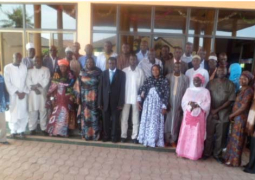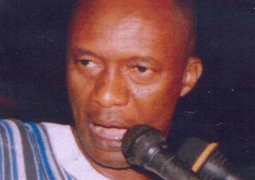
The United Nations’ International Youth Day is celebrated on August 12 each year to recognise efforts of the world’s youth in enhancing global society.
It also aims to promote ways to engage young people in becoming more actively involved in making positive contributions to their communities.
It would be recalled that in December 2009, the United Nations General Assembly proclaimed 12 August 2010 to 12 August 2011 as the International Year of Youth (IYY). This also coincides with the 25th anniversary of the first International Youth Year proclaimed in 1985. “Change Our World” has been chosen as the theme for IYD 2011 as it not only expresses the level of impact that young people strive to achieve, but also reflects the notion of a global community that is a core principle of the United Nations.
Launched on International Youth Day 2010, the IYY is an exciting year for young people around the world. Its official theme of ‘Dialogue and Mutual Understanding’ allows people of all ages worldwide to celebrate young people’s ingenuity and energy, as well as their contributions to enhancing peace and development. This is also an occasion for the international community and the United Nations’ system to show their commitment to tackling youth issues and enhancing youth participation in decision-making processes.
Eighty-five young leaders and policymakers from 45 countries gathered recently in
The gathering brought together young people from multilateral organizations from UN agencies; NGOs and researchers to share practice, explore challenges and develop recommendations for more meaningful international youth participation.
UNICEF-Speak Africa Youth spokesperson for The Gambia, Abdou Jatta, was among the few invited young leaders who were present at the London youth policy conference that shared their reflection and experience as the UN IYY came to an end.
He said that from the analysis, the research, the networking and the dialogue to action towards more meaningful international youth participation are essential.
Jatta, also an executive council member of the National Youth Parliament of The Gambia, added that throughout the IYU they have been seeking some common ground on which to build shared ideas and actions between the different stakeholders that can make a difference.
“We have shared experience about how difficult it can be to bring about change in this area but we have found common ground,” he explained. “We have some powerful ideas and we have a committed and influential network with extensive reach across the world. Youth participation is currently on the international agenda, with young people’s role on the move, and the need to respond, and also through the International Year of Youth.
“But the year has come to a close and other global issues will soon take the stage; we need to maximise the opportunities that exist now. We hope to follow up on our personal commitments and continue to work with ideas and recommendations forward.”
The
It would be recalled that Jatta was one of the leading prominent young African youth leaders invited by the African Union and the United Nations, representing the five sub-regions of the African continent, to evaluate the 2008 year of the African Youth Assessments and to review major framework developed by the African Union.
Participants also familiarised themselves with process and structures of engagement at national and continental level as well as sharpened their advocacy skills, explored advocacy strategies and engaged in dialogue with elders/leaders and network with their peers within the continent to push and advocate to the AU to declare 2009-2019 as the decade of youth development in Africa. The decade was declared during the AU Executive Council Meeting held in January 2009 in
Lucy Gillet, UK Young Ambassador, shared her experience of being a young ambassador and the importance she places on trying to be really representative and accountable, something that is not always apparent at international forums.
She shared a story of working extremely hard with other young people to help develop and present the communiqué at the last Commonwealth Education Ministers’ meeting.
She noted that the UK Young Ambassadors project was set up to address the said issue and to make international youth representation more inclusive and effective by rooting representation in the voice and experience of young people across the
Lisa Ainbinder, from the UN Youth based in
She made the point that it is important to understand the limitations of the UN youth department. “It is small and not very well resourced,” she said.
Lisa however added that there needs to be an integrated response to the agenda, not just within the UN but also with each other and with the UN agencies, as well as alternative platforms opened up for young people.




